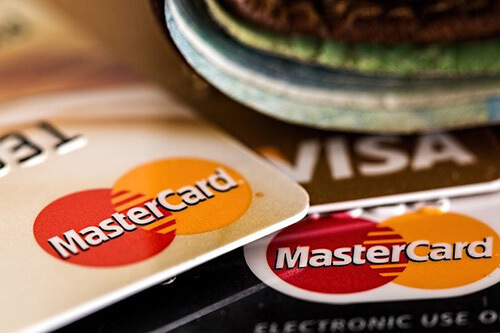
Credit histories give an insight into your recent and past financial behaviour, by highlighting your previous or outstanding debts and whether these were paid in the agreed time frame.
Your credit history helps to formulate an overall score, which creditors such as lenders and banks use to assess whether they want to lend to you, or not.
Having a good credit history increases your chances of being accepted, as lenders and other creditors perceive you to be a lower financial risk.
On the other hand, a poor credit history signals to lenders that you may be unable to repay debts, and so your chances of securing a line of credit may be reduced.
Some lenders can assist individuals with adverse credit histories, meaning that options are still available.
Equally, if you have no credit history, your success at securing a loan or other type of funding may be diminished, as creditors are unable to determine whether they can rely on you to repay debts.
Therefore, having a credit history is vitally important when applying for a loan, or other type of credit.
Due to this, it is useful to know how to build a credit history.
Building a credit history
There are a variety of different factors that can help you build a credit history, which are outlined below.
Registering to vote
One step that can be taken to build your credit history, is by registering to vote on the electoral roll.
Although this does not directly highlight your ability to repay debts, it can massively influence a lender's decision on whether to lend to you or not.
This is because lenders need to verify your identity, before agreeing to lend you money, to ensure that you are who you say you are. This is one of several measures taken by lenders to eliminate fraud.
By registering to vote it confirms your identity to lenders, and thus it may enhance the credit score you are allocated.
Bank accounts
Having a UK bank account can also help to build your credit history, but you must use it carefully, otherwise you may end up decreasing your overall score.
Ensuring that you have the necessary funds in your bank account to meet any payments is a positive approach, which illustrates to lenders that you can meet repayments.
Furthermore, having a bank account shows that you have developed a relationship with a financial institution, which in turn may enhance your credibility.
Credit cards

Credit cards are another useful way to build your credit history, however, these accounts need to be managed responsibly.
Using a credit card and ensuring that repayments are made within the agreed time frame demonstrates to lenders your ability to meet payment schedules.
Consequently, your credit history will be positively impacted.
If you miss payments on your credit cards, however, it can damage your credit history and you can be charged interest. It is therefore crucial to be cautious with these accounts.
Direct debits
Another method that you can use to boost your credit history, is setting up direct debits in your bank account.
Using direct debits shows lenders your ability to repay debts. They can also help you to mitigate the risk of late or missed payments.
However, it is important to ensure that your bank account has the required funds to meet direct debits, otherwise, you risk going into an overdraft, which could negatively affect your credit history.
Avoid late and missed payments
Late and missed payments can negatively affect your credit history, as it shows lenders and other creditors that you are unable to fulfil a repayment schedule.
It is therefore imperative for individuals to try to avoid late or missed payments wherever they can, to ensure that their credit history is not impacted.
If you’d like to know what’s on your credit report, check out our blog on how to check your credit score.
Conclusion
Overall, there are numerous ways to build up a credit history, to increase the chance of being accepted for loans and other forms of funding.
Each method may carry risks if they are not managed responsibly, and so you need to assess your situation carefully, before undertaking any of the previous steps.
If you want to find out more about getting a mortgage with bad credit, you can read our blog on can you get a mortgage with bad credit.




